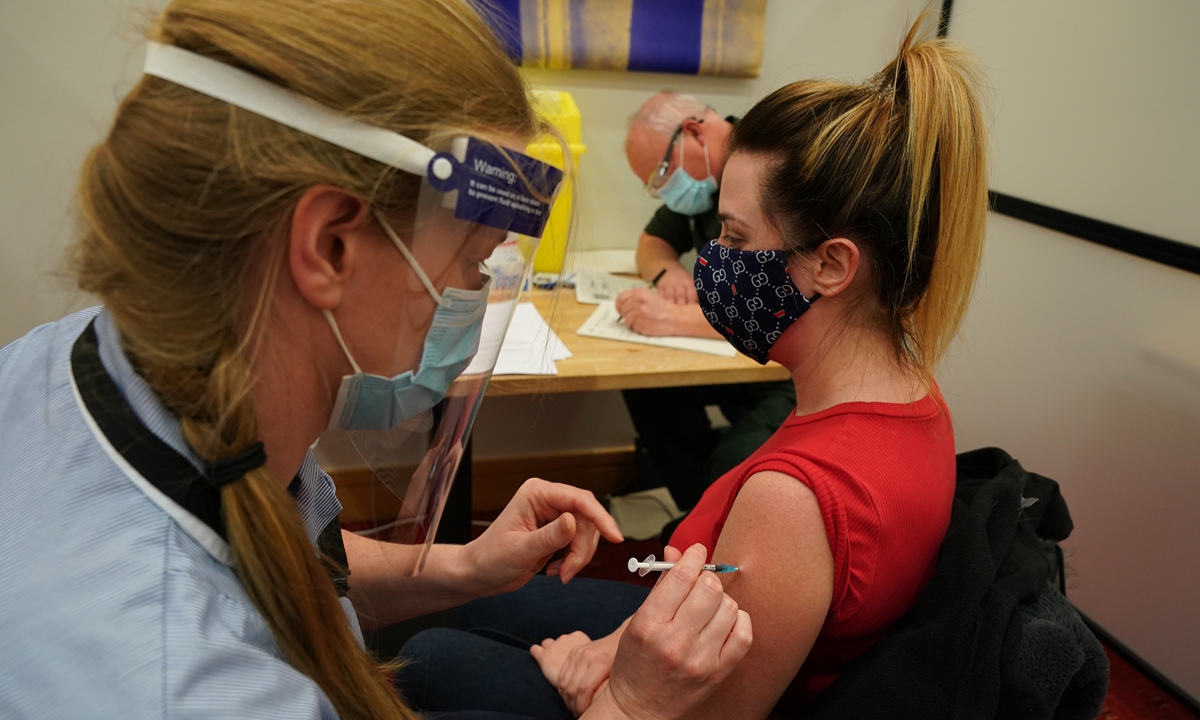https://youtu.be/_D4d9OXz8V8
As of Wednesday Beijing time, over 100 million people around the world have been infected with COVID-19, with over 2.15 million deaths. The severest pandemic since the beginning of the 21st century has brought great sufferings to the people and incurred huge losses. It has provided lessons.
As World Health Organization Director-General Tedros Adhanom Ghebreyesus wrote on Twitter, "Numbers can make us numb to what they represent: every death is someone's parent, someone's partner, someone's child, someone's friend." After all, humanity shouldn't be numb. We must keep the thirst for humanitarianism and always spare no efforts. Humanity must not connive in the growing number of deaths - it is a shame of the modern civilization.
Many lessons can be drawn from the COVID-19 pandemic that manages to rage across the globe. The biggest one is that we humans should have made full use of the capabilities to contain the pandemic, but the interference of politics with science and the resulting disunity among major countries have allowed the coronavirus to take advantage. What was supposed to be a unified war against the epidemic has become separate wars within different countries and regions. The problem is clear for all to see, but we have not yet been able to mend the fold quickly enough to build the collective human solidarity that was so badly needed.
Within many countries, too, it has been difficult to forge consensus and solidarity around the pandemic prevention routes. How to coordinate the fight against the epidemic and to boost economic recovery has become a common question. In this process, the opinions of scientists are often marginalized, and some influential politicians put non-scientific considerations first at the critical moment, leading the fight against the pandemic to go astray.
The ravaging epidemic has also exposed the fragility of economic activity and the way human society is organized. Most societies in general are poor in vigilance to disasters with a lack of mobilization, and dependent too much on fair weather for prosperity. The pandemic this time showed the destructive power of a public health crisis at a time when the world's population is growing and more socially intense. Human society must increase its investment in public safety.
After a terrible year, we are now at a new stage of the pandemic. Vaccines at this stage have the potential to revolutionize the fight against the pandemic and reshape the global structure.
China is a large populous country. It has achieved outstanding success in the last round of the epidemic fight, laying a sound foundation for the next stage of the war against the coronavirus. The country is also at the forefront of vaccine research and development. Next, we must create the fastest vaccination rate and stand at the front ranks on the herd immunity list. This is a new test for China.
We contained the epidemic without vaccines in the last round of the virus fight. We cannot continue such an advantage. The speed of vaccine promotion will greatly affect the opening-up of all societies in the future. The US and European societies suffered heavy losses last year, but at the same time they have developed relatively strong endurance toward the pandemic. If their vaccination is fast, this will promote mutual opening-up among them, which will exert pressure on countries which are slow in vaccination.
Only by getting vaccination rates in China roughly on par with the rates in the US and European countries, along with keeping the social distancing capabilities we already have, can China continue to lead in being open in the future and further provide the greatest impetus for the recovery of the global economy.
Before the next winter comes, China needs to strive to get the majority of the vulnerable and high-risk groups vaccinated and to expand the vaccination coverage to the general population. We need to guarantee the total number of people vaccinated in China several times higher than the number in the US.
China also needs to provide large quantities of vaccines to developing countries, and the total number of vaccines exported should be the largest. This is the role China should play as a major manufacturing country, and this is what is expected of China.
To accomplish these tasks at the same time, China's vaccine production must speed up as soon as possible. We don't have time to celebrate our past achievements. We need to move forward and focus on the future
Regardless of whether Europeans use Chinese vaccines, it is evident that Chinese vaccines have played an important role to protect their interests.
Malaysia ranked 29th for number of Covid-19 cases ... -

Related posts:
Vaccine distribution shouldn’t lead to catastrophic moral failure
Getting ready for Covid-19 vaccines
The dreadful year is coming to an end with optimism and hope in the air as we greet 2021.
China joins WHO-backed vaccine programme Covax rejected by Trump











